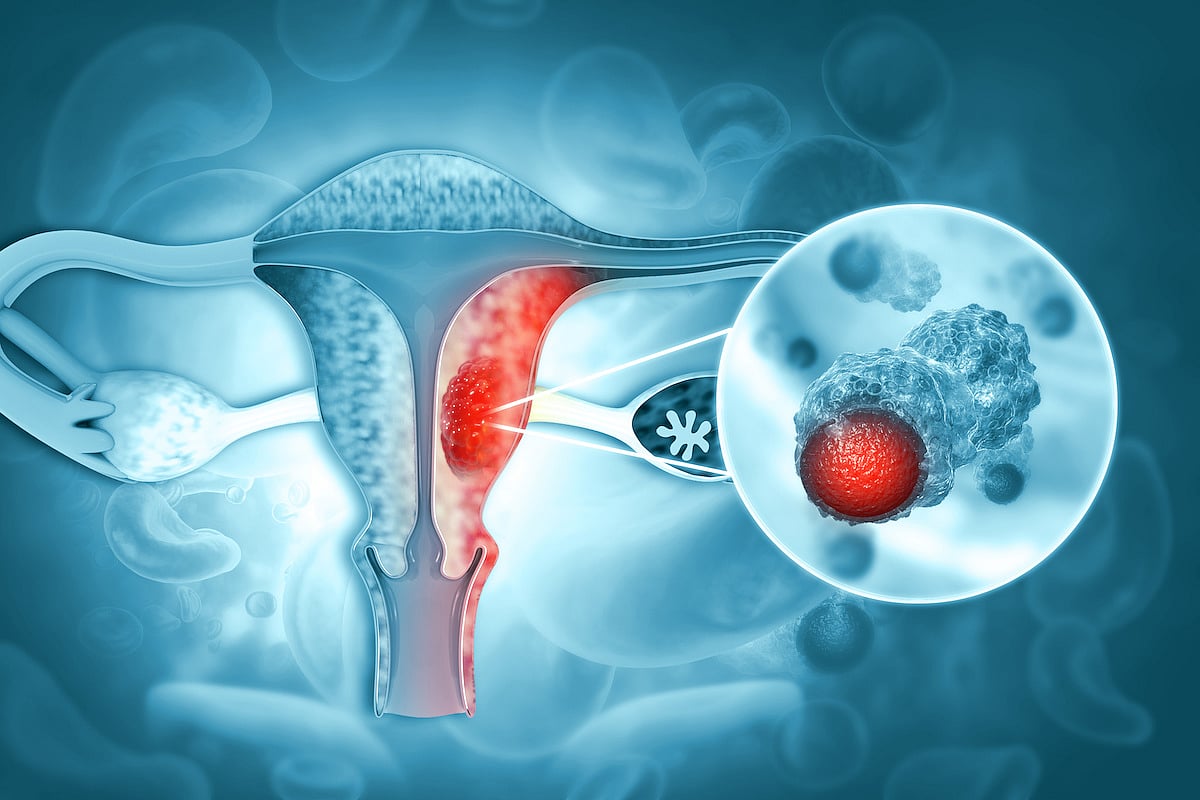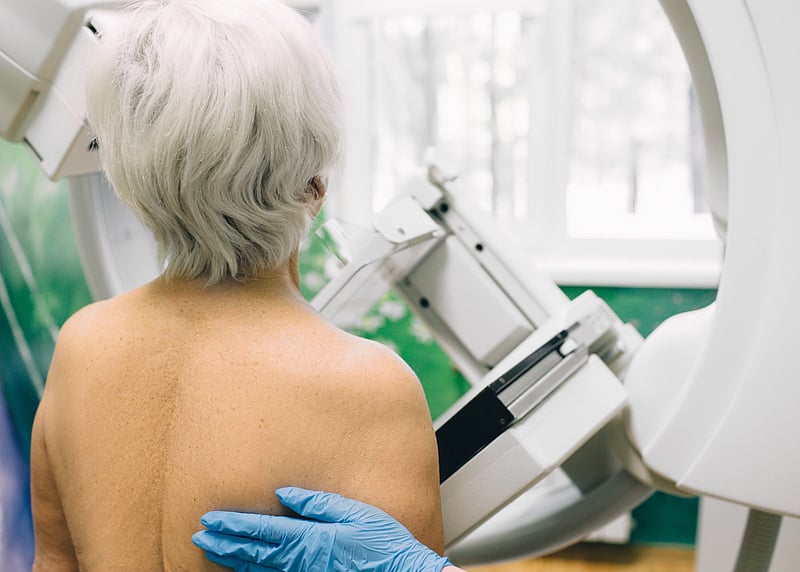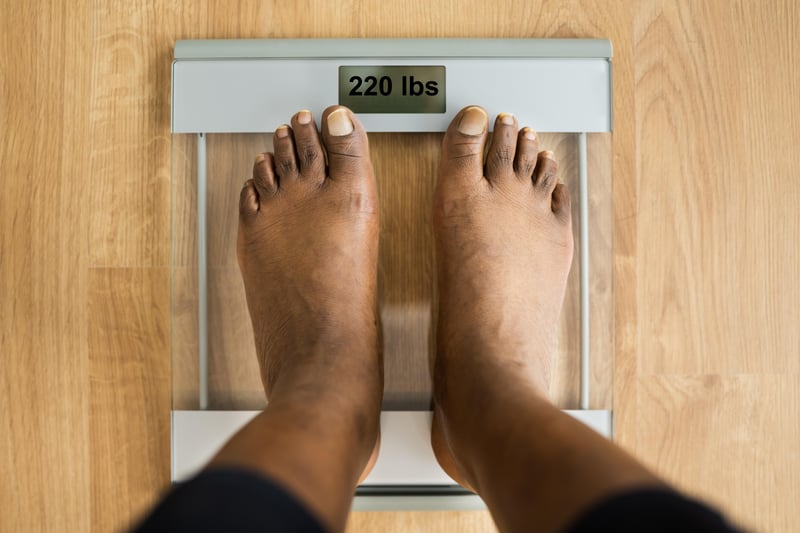Get Healthy!
Results for search "Cancer: Uterine".
28 Aug
Long-Term Study Offers Reassurance to Early Breast Cancer Survivors
The risk of developing a second primary cancer after being treated for early invasive breast cancer is only slightly higher than the general population, according to a new study.
09 May
14 Types of Cancer Are on the Rise in People Under 50, Study Finds
Certain types of cancer are becoming increasingly common in people under 50, according to new research. These include breast, colon, kidney and uterine cancer.
Health News Results - 17
Too many women don’t know a key warning sign of endometrial cancer, the most common cancer of the female reproductive organs, a new study shows.
More than one-third (37%) of women surveyed did not know that postmenopausal bleeding is a key symptom of endometrial cancer, researchers said.
Worse, 41% said they wouldn’t tell their doctor about postmenopausal bleeding if t...
- HealthDay Reporter
- Dennis Thompson
- |
- August 2, 2024
- |
- Full Page
An already approved cancer drug could be an effective treatment for women with advanced, recurring uterine cancer, a new clinical trial shows.
Rucaparib, which belongs to a class of drugs called PARP inhibitors, extended women's survival for more than a year and a half, on average, compared to simple surveillance following chemotherapy, re...
- HealthDay Reporter
- Dennis Thompson
- |
- March 22, 2024
- |
- Full Page
Older Black women who use chemical hair relaxers may be more likely to develop uterine cancer, new research suggests.
Specifically, postmenopausal Black women who reported using hair relaxers more than twice a year or for more than five years had more than a 50% increased risk of being diagnosed with uterine cancer compared to women who rarely or never used relaxers.
"Black women ha...
- HealthDay Reporter
- Denise Mann
- |
- October 13, 2023
- |
- Full Page
Harmful "forever" chemicals are widespread in the environment, and new research hints they pose a particular health risk to women.
A new study suggests women who are exposed to higher levels of per- and polyfluorinated alkyl substances, or PFAS, are more likely to have been diagnosed with certain cancers. Exposure is also linked to liver damage, fertility issues, high blood pressure and o...
- HealthDay Reporter
- Denise Mann
- |
- September 19, 2023
- |
- Full Page
Cancer death rates among Hispanic Americans have declined in general over the past two decades, but for certain cancers the outlook has only gotten worse, a new study finds.
First, the good news: Thanks to improvements in screening, diagnosis and treatment -- and a decline in smoking -- the U.S. cancer death rate has been dropping for years. And the new study found that this is true of Hi...
- HealthDay Reporter
- Amy Norton
- |
- July 3, 2023
- |
- Full Page
Researchers have discovered that two drugs might be better than one for women who have advanced endometrial cancer.
Combining chemotherapy and immunotherapy or a monoclonal antibody at the same time helped these patients live longer without their cancer progressing, especially those who had a specific type of endometrial cancer known as a mismatch repair-deficient tumor.
"We found a...
- HealthDay Reporter
- Cara Murez
- |
- March 28, 2023
- |
- Full Page
Black women are not getting the tests they need to diagnose uterine cancer early, according to a new study.
Previous research had found that Black patients are less likely to receive early diagnoses than people from other racial and ethnic groups. The new study showed that it's because Black women were more likely to face testing delays or to not get recommended tests at all.
That m...
- HealthDay Reporter
- Cara Murez
- |
- February 21, 2023
- |
- Full Page
For women experiencing menopause symptoms with no sign of relief in sight, it doesn't have to be this way.
An expert in women's health offers some suggestions for helping control symptoms during this time of life when menstrual cycles end.
"We sometimes hear the question, 'Do I need to treat hot flashes or night sweats?' and the answer for many may be, 'yes.' Because hot flashes and...
- HealthDay Reporter
- Cara Murez
- |
- January 24, 2023
- |
- Full Page
The latest statistics from the U.S. National Cancer Institute (NCI) show a continuing decline in the number of Americans who die from cancer, although there's been little change in the number of new cancer cases.
"From 2015 to 2019, overall cancer death rates decreased by 2.1% per year in men and women combined," according to a statement issued by the NCI on Thursday.
The biggest d...
- HealthDay Reporter
- Ernie Mundell
- |
- October 27, 2022
- |
- Full Page
A Missouri woman has sued L'Oréal and several other beauty product companies, alleging that their hair-straightening products caused her uterine cancer.
- HealthDay Reporter
- Cara Murez
- |
- October 25, 2022
- |
- Full Page
Women who regularly use chemical hair straighteners may be more prone to developing uterine cancer, a new large government study suggests.
The study, which followed nearly 34,000 U.S. women over a decade, found that those who frequently used hair straighteners were 2.5 times more likely to de...
- HealthDay Reporter
- Amy Norton
- |
- October 20, 2022
- |
- Full Page
The U.S. Supreme Court's decision to overturn Roe v. Wade will limit cancer treatment options for pregnant women and put lives needlessly at risk, America's leading cancer societies warn.
About one in every 1,000 women who are pregnant will wind up being diagnosed wi...
- HealthDay Reporter
- Dennis Thompson
- |
- July 12, 2022
- |
- Full Page
Uterine cancer deaths have been increasing in the United States, particularly among Black women. Now, research appears to pinpoint a cause.
A rare but aggressive type of cancer known as Type 2 endometrial cancer is more difficult to treat and was responsible for 20% of cases and 45% of deaths identified in the study.
Deaths from this type of cancer increased by 2.7% per year during...
- HealthDay Reporter
- Cara Murez
- |
- May 6, 2022
- |
- Full Page
Obesity is tied to many types of cancer, and new research finds that over the long term it nearly doubles a woman's risk of endometrial cancer.
"This study is an interesting first step into how genetic analyses could be used to uncover exactly how obesity causes cancer, and what can be done to tackle it," said study lead author Emma Hazelwood, of the University of Bristol in England.
<...- HealthDay Reporter
- Robert Preidt
- |
- April 21, 2022
- |
- Full Page
President Joe Biden announced Wednesday that he is giving a new push to the cancer moonshot initiative that he first led during the Obama administration.
In his announcement, Biden said the program would aim to boost prevention, screening and research with a target of reducing the cancer death rate by 50% over the ne...
- HealthDay Reporter
- Robert Preidt and Robin Foster
- |
- February 3, 2022
- |
- Full Page
A drug used to treat several types of cancer is also an effective treatment for aggressive forms of endometrial cancer, the second most common cancer in women worldwide, a new clinical trial shows. The endometrium is the inner lining of the uterus.
"These findings suggest a long-term benefit to patients," said lead researcher Dr. David O'Malley, a gynecologic oncologist at the Ohio State ...
- HealthDay Reporter
- Cara Murez
- |
- January 13, 2022
- |
- Full Page
Patients who undergo surgery for certain types of cancer may have better short-term survival if they receive a particular anti-nausea drug, a preliminary study suggests.
Among more than 74,000 patients who had cancer surgery, researchers found that those who received the drug -- called dexamethasone -- were less likely to die in the next 90 days.
The vast majority of all patients su...
- HealthDay Reporter
- Amy Norton
- |
- October 12, 2021
- |
- Full Page

















